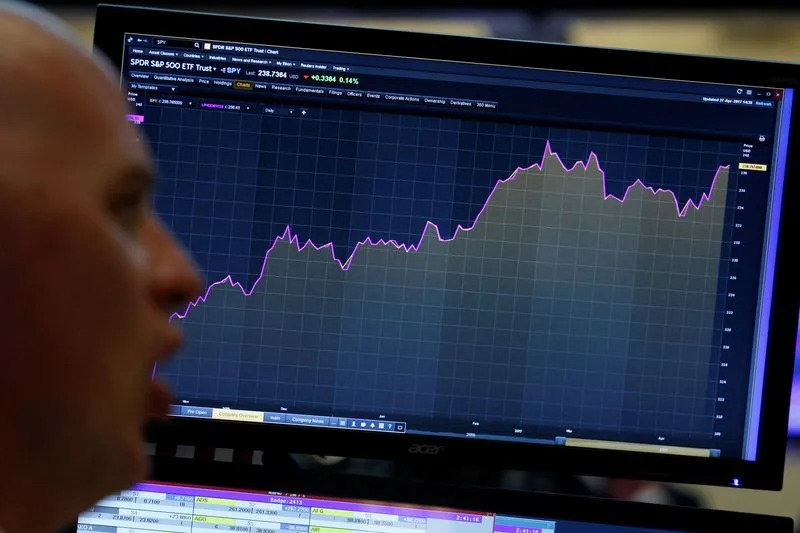(Bloomberg) -- Israel will probably hold interest rates for an eighth consecutive time, as the central bank anticipates more inflationary pressure stemming from a multi-front war against Iran-backed militias.
The Bank of Israel will keep its base rate at at 4.5% on Monday, according to all but one of the 14 analysts in a Bloomberg survey. The outlier sees a cut of 25 basis points.
The central bank will also publish fresh economic and monetary forecasts. Estimates for the latter range widely, with analysts projecting rates of anywhere between 3.75% and 4.25% in 12 months.
Israel’s economy has slowed since the conflict began with Hamas’ attack in October 2023 and gross domestic product rose only about 0.4% last year. But the central bank’s refrained from more cuts following its last one at the beginning of 2024, citing concern over market stability and increased government spending to fund the war effort.
The annual inflation rate is 3.4%, above the target of 1% to 3%. Governor Amir Yaron has said monetary easing is likely off the table until the second half of 2025.
Yet with a ceasefire in Lebanon since November and Israeli mediators stepping up efforts for a truce in Gaza, some economists think cuts could come earlier. That would align Israel’s monetary policy more with that of the US and Europe, where easing cycles have started.
“We assume the central bank will advance its projected timing of the next cut,” Bank Hapoalim, one of Israel’s two largest lenders, said on Sunday. Still, it doesn’t expect the first reduction in rates until May.
Inflation may accelerate before falling back into the government’s target range. That’s mainly due to a 1% rise in value-added tax on Jan. 1, part of a 40-billion-shekel ($11 billion) fiscal plan aimed at lowering the budget deficit this year to about 4.5% of GDP from almost 8% in 2024. Water and power prices, as well as property taxes, have also increased, adding to immediate inflationary pressures.
Talk of a potential rate hike has died down in the past two months, largely due to the government’s fiscal tightening and the shekel appreciating since November, around the time the truce with Hezbollah in Lebanon began. In the last quarter of 2024, the shekel was the best-best performing currency in a basket of expanded majors tracked by Bloomberg, while prices for Israel’s credit-default swaps — used by some bond traders to hedge against a default — fell sharply, as did shekel bond yields.
The shekel’s performance is “likely to tame inflation in 2025,” said Jonathan Katz, Leader Capital Markets’ economic strategist in Tel Aviv. He added that could prompt a rate cut as early as the beginning of the second quarter.
After the rate decision, Yaron, the governor, will speak to reporters. He’s likely to talk about inflation projections, the fiscal deficit and the slowdown in economic growth.
For a rebound in 2025, private consumption, which will likely be hit by the government’s austerity measures, will need to be replaced with other growth engines.
“Investments will have to gain momentum and hi-tech led exports will need to accelerate,” said Nira Shamir, the Tel Aviv-based chief economist of Bank Discount. “And that’s very likely to happen.”





